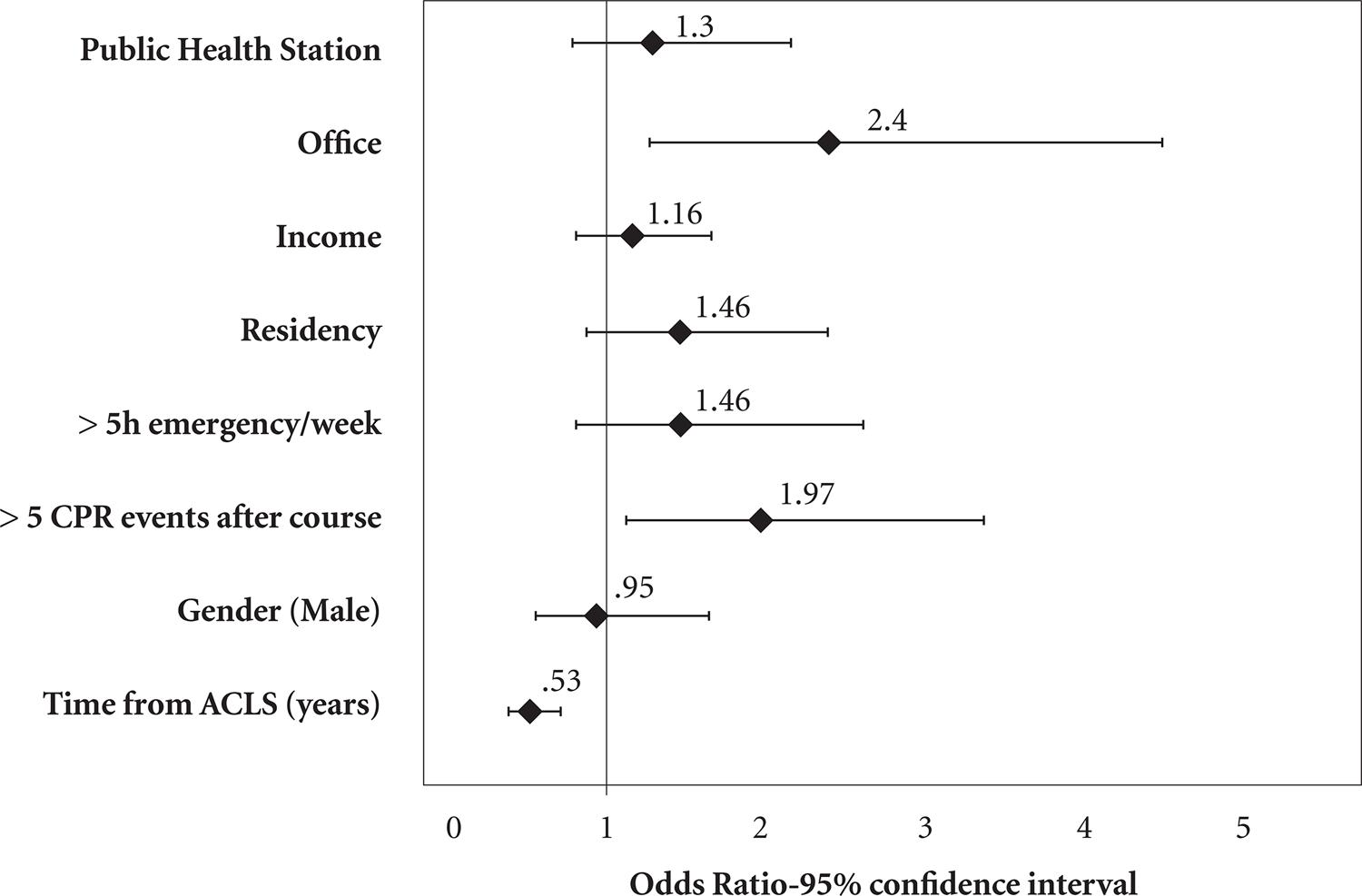Abstract
We sought to evaluate the impact of Advanced Cardiac Life Support (ACLS) training in the professional career and work environment of physicians who took the course in a single center certified by the American Heart Association (AHA). Of the 4631 students (since 1999 to 2009), 2776 were located, 657 letters were returned, with 388 excluded from the analysis for being returned lacking addressees. The final study population was composed of 269 participants allocated in 3 groups (< 3 years, 3-5 and > 5years). Longer training was associated with older age, male gender, having undergone residency training, private office, greater earnings and longer time since graduation and a lower chance to participate in providing care for a cardiac arrest. Regarding personal change, no modification was detected according to time since taking the course. The only change in the work environment was the purchase of an automated external defibrillator (AED) by those who had taken the course more than 5 years ago. In multivariable analysis, however, the implementation of an AED was not independently associated with this group, which showed a lower chance to take a new ACLS course. ACLS courses should emphasize also how physicians could reinforce the survival chain through environmental changes.
Cardiac arrest; Advanced Cardiac Life Support; Social responsibility


